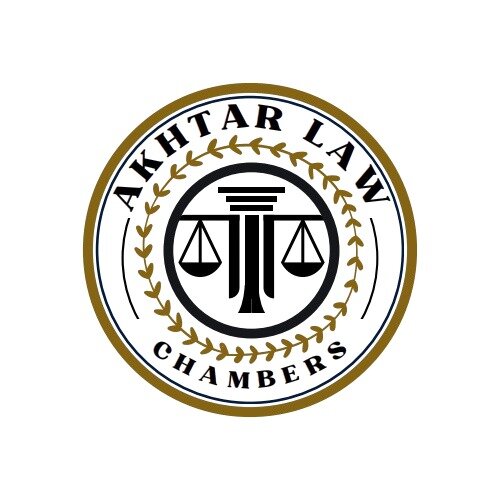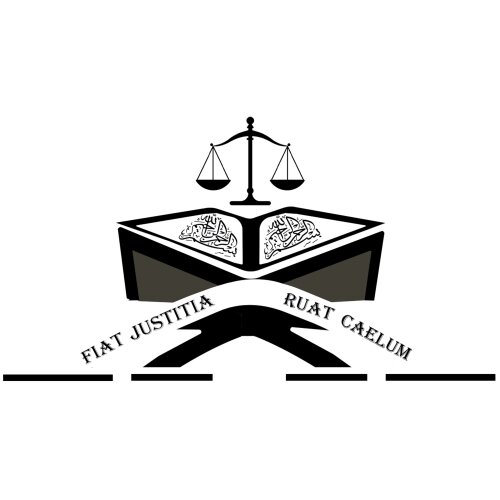Best Discrimination Lawyers in Pakistan
Share your needs with us, get contacted by law firms.
Free. Takes 2 min.
Or refine your search by selecting a city:
List of the best lawyers in Pakistan
About Discrimination Law in Pakistan
Discrimination in Pakistan is broadly recognized in areas such as employment, education, housing, and access to public services. Although Pakistani law prohibits discrimination based on race, religion, gender, disability, and other factors, enforcement can sometimes be inconsistent, and cultural norms may influence societal attitudes. Discrimination law in Pakistan seeks to protect individuals from unfair treatment and promote equality across different sectors.
Why You May Need a Lawyer
If you believe you have faced discrimination or unequal treatment, seeking legal advice can be crucial. Common situations include:
- Discriminatory hiring practices or workplace inequality
- Denial of equal opportunity in educational institutions
- Unfair treatment by public or private service providers based on personal characteristics
- Discrimination in housing or property-related matters
A lawyer can help guide you through legal processes, represent you in courts or tribunals, and ensure that your rights under domestic law and international obligations are upheld.
Local Laws Overview
Discrimination law in Pakistan is primarily governed by constitutional provisions, statutory laws, and judicial interpretations. Key aspects include:
- Constitution of Pakistan: Articles 25 and 27 of the Constitution prohibit discrimination on the grounds of race, religion, caste, sex, residence, or place of birth.
- Protection Against Harassment: The Protection Against Harassment of Women at the Workplace Act 2010 provides for the prevention of workplace harassment and upholds the dignity of female employees.
- Employment Laws: The Industrial and Commercial Employment Ordinance 1968 addresses employee rights and privileges, aiming for nondiscriminatory practices.
- Child and Gender Rights: The Child Rights Act and various gender-related legal frameworks strive to foster protection against discrimination for vulnerable groups.
Frequently Asked Questions
What constitutes discrimination under Pakistani law?
Discrimination occurs when an individual is treated unfairly or unfavorably due to specific characteristics such as religion, gender, ethnicity, disability, or age.
Can I file a complaint if I face workplace discrimination?
Yes, you can file a complaint with your employer, or escalate the issue to a relevant governmental body or the Labor Courts.
Which governmental body handles discrimination cases?
The Human Rights Commission of Pakistan (HRCP) and provincial ombudsperson offices offer avenues to report and resolve discrimination complaints.
What protections exist for gender discrimination?
Pakistan’s legal framework, including the Constitution and specific laws like the Protection Against Harassment at Workplace Act, aim to protect against gender discrimination.
How can I prove discrimination in court?
Gathering evidence such as emails, witness accounts, or discriminating policies, and providing documentation to support your claim is crucial in proving discrimination.
Is religious discrimination common in Pakistan?
While it's prohibited, instances of religious discrimination exist. Laws are in place to address and mitigate its effects.
Does the law protect against educational discrimination?
Yes, educational institutions are expected to provide access and benefits without discrimination based on personal characteristics.
Can non-citizens seek legal recourse for discrimination?
Non-citizens can report discrimination issues, though they might face additional challenges related to their status.
Are there any penalties for organizations that practice discrimination?
Organizations may face fines, legal sanctions, or mandates to rectify discriminatory practices under applicable laws.
What should I do if I witness discrimination?
Reporting the incident to authorities, supporting affected individuals, and possibly acting as a witness can help combat discrimination effectively.
Additional Resources
Several organizations and governmental bodies provide resources to assist those facing discrimination:
- Human Rights Commission of Pakistan (HRCP): Offers support and guidance on discrimination issues.
- Provincial Ombudspersons: Address complaints of discrimination, particularly regarding harassment.
- Legal Aid Societies: Provide free or low-cost legal assistance to those in need.
- National Commission on the Status of Women (NCSW): Focuses on women’s rights and gender equality.
Next Steps
If you need legal assistance regarding discrimination, consider the following steps:
- Document any discriminatory incidents and gather evidence.
- Consult with a lawyer specializing in discrimination law for advice on your case.
- File complaints as needed with relevant authorities or organizations.
- To find a qualified lawyer, consider reaching out to local bar associations or legal aid organizations for referrals.
By taking timely action and utilizing available resources, you can better navigate the legal avenues for addressing discrimination in Pakistan.
Lawzana helps you find the best lawyers and law firms in Pakistan through a curated and pre-screened list of qualified legal professionals. Our platform offers rankings and detailed profiles of attorneys and law firms, allowing you to compare based on practice areas, including Discrimination, experience, and client feedback.
Each profile includes a description of the firm's areas of practice, client reviews, team members and partners, year of establishment, spoken languages, office locations, contact information, social media presence, and any published articles or resources. Most firms on our platform speak English and are experienced in both local and international legal matters.
Get a quote from top-rated law firms in Pakistan — quickly, securely, and without unnecessary hassle.
Disclaimer:
The information provided on this page is for general informational purposes only and does not constitute legal advice. While we strive to ensure the accuracy and relevance of the content, legal information may change over time, and interpretations of the law can vary. You should always consult with a qualified legal professional for advice specific to your situation.
We disclaim all liability for actions taken or not taken based on the content of this page. If you believe any information is incorrect or outdated, please contact us, and we will review and update it where appropriate.
Browse discrimination law firms by city in Pakistan
Refine your search by selecting a city.

















